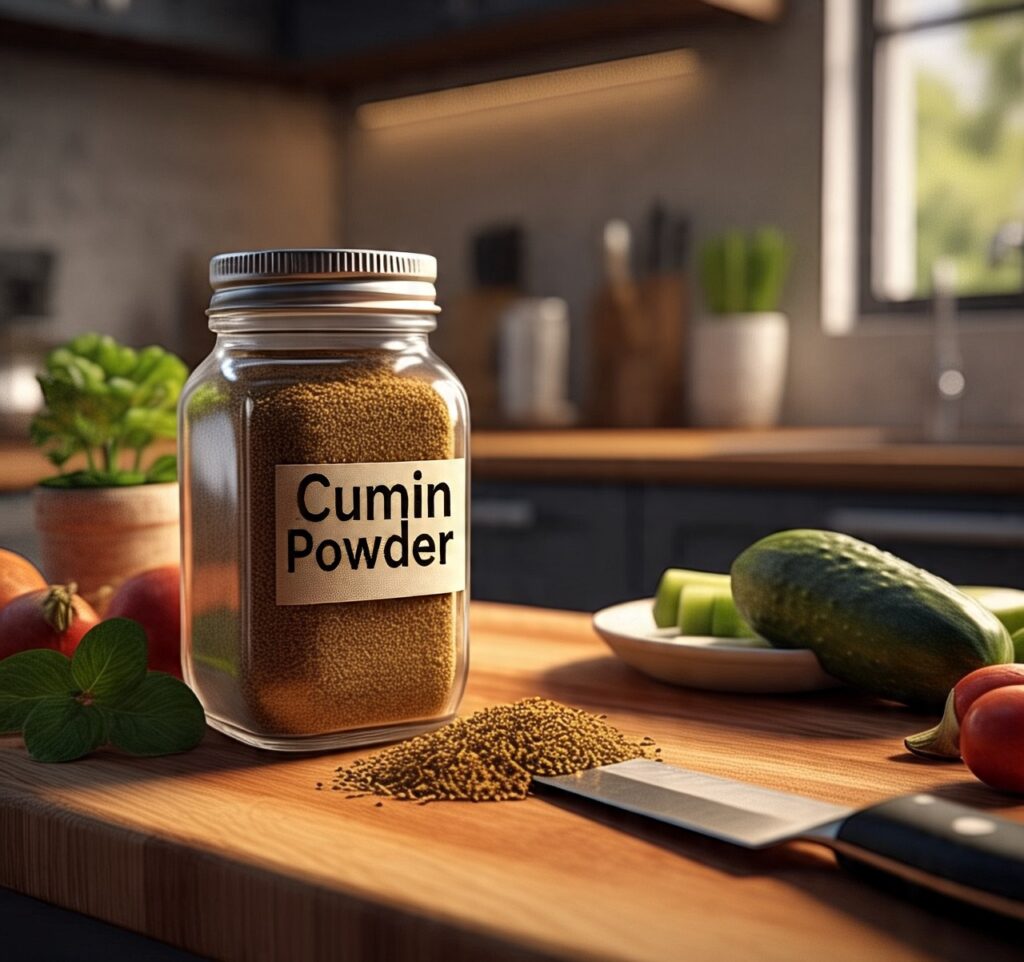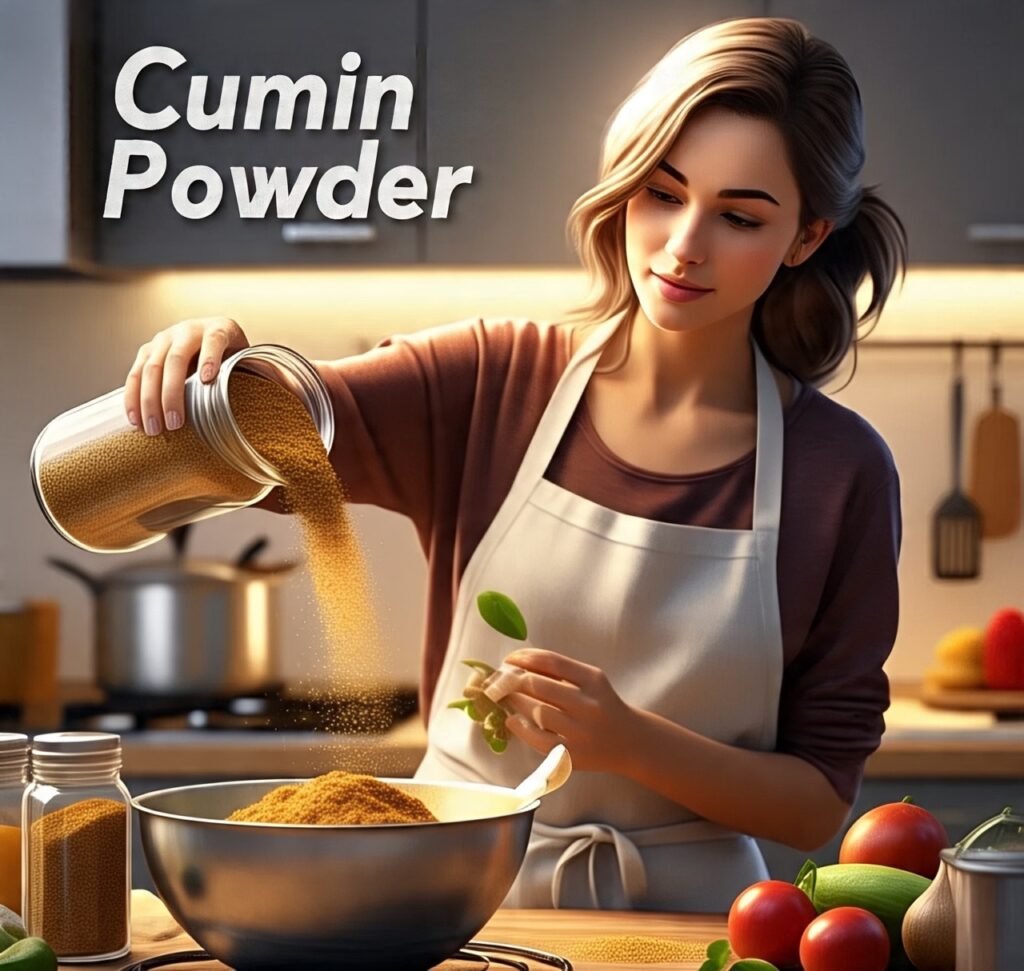
Open your spice cabinet and there it is—cumin powder. Earthy, aromatic, and quietly powerful, it may not look like much, but this finely ground spice has been a staple in kitchens and healing traditions across the globe for thousands of years. Whether it’s adding depth to your curries or soothing your digestive system, cumin powder is far more than just a seasoning—it’s an experience.
So, what makes cumin powder so essential in both ancient rituals and modern recipes? Let’s dive into the world of this unassuming powerhouse.
What Is Cumin Powder?
Cumin powder is made by grinding dried cumin seeds, which come from the flowering plant Cuminum cyminum, part of the parsley family. Originating in the Eastern Mediterranean and South Asia, cumin has found its way into the culinary and medicinal practices of Indian, Middle Eastern, North African, and Latin American cultures.
When ground into powder, cumin releases a warm, earthy aroma and slightly bitter, nutty flavor that intensifies any dish it graces. It’s an essential part of spice blends like garam masala, taco seasoning, and ras el hanout.
Cumin Powder vs. Cumin Seeds: What’s the Difference?
| Feature | Cumin Seeds | Cumin Powder |
|---|---|---|
| Texture | Whole, grain-like | Finely ground |
| Flavor Release | Slow, when toasted or bloomed in oil | Quick and intense when added directly |
| Shelf Life | Longer (up to a year or more) | Shorter (use within 6 months) |
| Uses | Tempering, pickling, spice blends | Curries, stews, marinades |
Both forms are valuable, but cumin powder is especially handy for quick recipes or when you want that immediate hit of flavor.
A Spice with Ancient Roots and Modern Science
Cumin’s reputation as a healing agent isn’t new. In ancient Egypt, cumin was used for preservation and medicinal purposes. Ayurvedic texts praise it for its digestive and detoxifying properties.
Modern science now backs many of these traditional beliefs. According to a review published in the journal Nutrients, cumin powder shows potential in reducing inflammation, improving cholesterol, regulating blood sugar, and aiding digestion.

Here are some standout health benefits:
1. Boosts Digestion
Cumin powder stimulates digestive enzymes, helping your body break down food efficiently. It’s especially helpful in relieving bloating and gas. Try adding a pinch to warm water after a heavy meal.
2. Rich in Iron
Just one teaspoon of cumin powder contains about 1.4 mg of iron—over 17% of the daily recommended intake for adults. This makes it a great supplement for people prone to iron deficiency.
3. Anti-Inflammatory and Antioxidant
Cumin is loaded with antioxidants like apigenin and luteolin. These compounds help fight oxidative stress and reduce inflammation, supporting overall cellular health.
4. Supports Weight Management
Some studies, like this randomized clinical trial in Complementary Therapies in Clinical Practice, suggest that cumin powder can aid in reducing body fat and improving BMI when consumed regularly.
Culinary Uses: A Dash of Magic in Every Spoon
If you’ve ever savored a richly layered curry or a smoky bowl of chili, there’s a good chance cumin powder played a silent but vital role.
Ways to Use Cumin Powder in Cooking:
- Indian Curries & Dals: Cumin powder is essential in Indian cuisine, where it adds warmth and depth to lentils and gravies.
- Mexican Cuisine: Used in taco seasoning, enchilada sauces, and chili.
- Middle Eastern Dishes: A key ingredient in falafel, kebabs, and hummus.
- Rice & Vegetables: Sprinkle into pilafs or sautéed vegetables for a nutty flavor boost.
- Marinades: Mix into yogurt or lemon-based marinades for meats and tofu.
💡 Pro Tip: For enhanced flavor, dry roast cumin powder slightly before adding it to your dish.
Homemade Cumin Powder: Freshness in Your Hands
While store-bought cumin powder is convenient, making it at home ensures purity and a more robust aroma.
How to Make Cumin Powder at Home:
- Dry roast cumin seeds in a pan until they start popping and emit a nutty aroma.
- Let them cool, then grind using a spice grinder.
- Store in an airtight container away from sunlight.
Homemade cumin powder can last up to 3 months with its flavor intact.
Cultural Significance: More Than Just a Spice
Cumin has deep symbolic meaning in various cultures:
- India: Used in wedding rituals and traditional Ayurvedic medicine.
- Middle East: Symbol of love and fidelity in ancient folklore.
- Europe (Medieval times): Believed to prevent lovers from straying.
Even today, cumin powder is found in Ayurvedic remedies, herbal teas, and ceremonial offerings.
Personal Take: A Kitchen Essential
Growing up in a South Asian household, cumin powder was non-negotiable in our kitchen. I remember watching my grandmother roast cumin seeds in a cast-iron skillet until the entire house smelled like earthy comfort. She believed a cup of warm water with a pinch of cumin was the best remedy for indigestion. Today, I still reach for cumin powder when I want to add a familiar warmth to my cooking or settle a fussy stomach.
And here’s the twist—I discovered that cumin works wonders in unexpected dishes too. A pinch in hot chocolate? Game-changer. It adds a smoky, almost mysterious layer that pairs surprisingly well with cocoa.
Quick Tips for Buying and Storing Cumin Powder
- Check for color and aroma: It should be golden-brown and smell earthy and strong.
- Buy in small quantities: Freshness fades over time.
- Use airtight containers: Exposure to air and moisture reduces potency.
- Label with date: Aim to use it within 3 to 6 months.
Summary Table: Why You Need Cumin Powder in Your Life
| Benefit | Details |
| Digestive Support | Enhances enzyme activity, relieves bloating |
| Nutrient-Rich | High in iron and antioxidants |
| Culinary Versatility | Works in global cuisines and fusion dishes |
| Homemade Advantage | Easy to make, fresher taste |
| Cultural Depth | Ties to Ayurveda, rituals, and folk traditions |
Final Thoughts: Cumin Powder as a Daily Ritual
Cumin powder might be small in appearance, but its contributions to health, culture, and flavor are immense. Whether you’re brewing a digestive tea, crafting a fiery curry, or sprinkling it over roasted vegetables, this spice brings more than taste—it brings tradition, wellness, and a touch of magic.
So next time you open that tiny jar, remember: you’re not just seasoning your food. You’re stirring in centuries of wisdom.
🌿 Ready to Spice Things Up?
Have you tried cumin powder in any unconventional recipes? Share your experiences in the comments below or tag us in your cumin creations on social media! For more spice wisdom and healthy living tips, subscribe to our newsletter or explore our other spice deep-dives.



